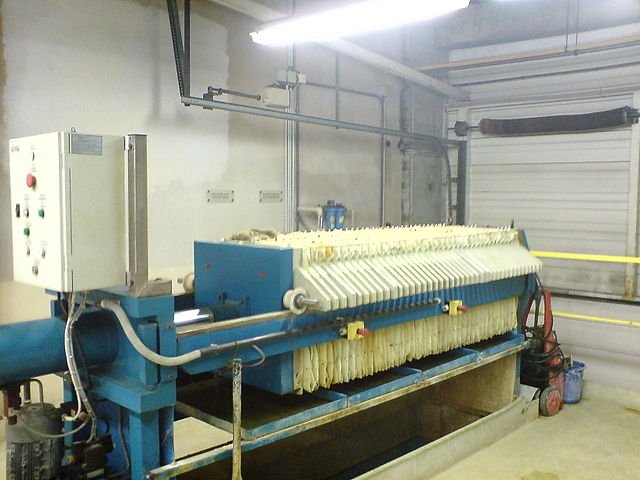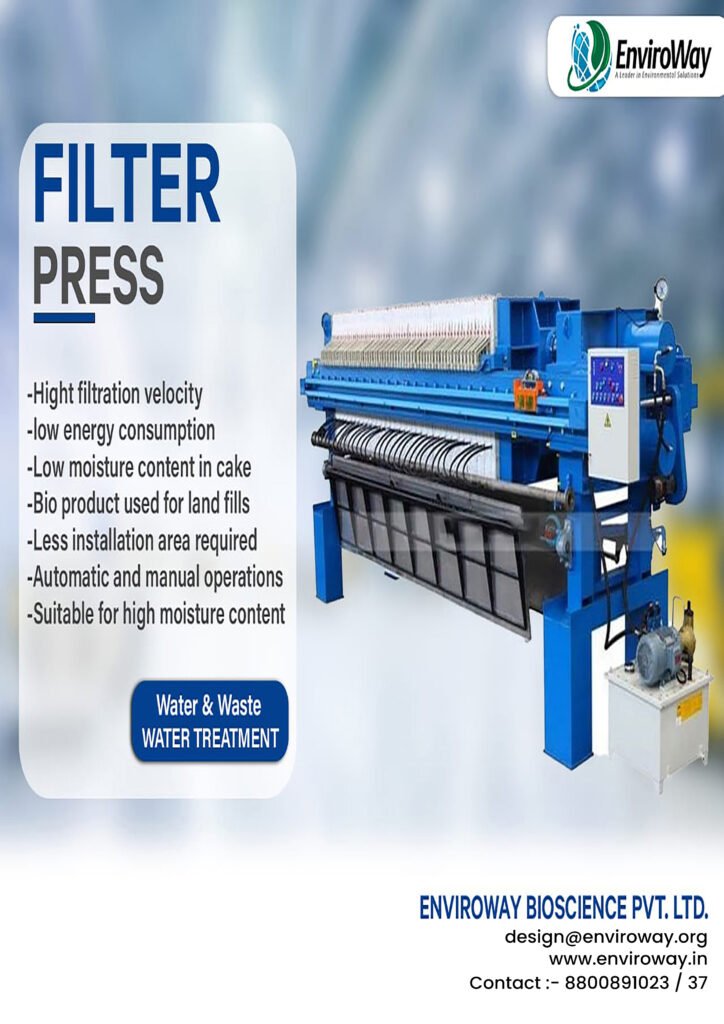Complete Guide For Buying A Filter Press For Waste Water Treatment

What is filter press machine?
A filter press machine is a specialized equipment used for separating solid waste from the liquid
through a process called pressure filtration.
How filter press works in waste water treatment?
Process of filter press in waste water treatment:
- Filling the chamber: The sludge or slurry containing solid waste in liquid is pumped into the
filter press through a feed pump. Then waste liquid is filled in the chambers made of filter plates
and filter clothes.
- Building Pressure: After the chambers are filled with the waste water, pressure is applied to
the system. This pressure can be generated using hydraulic systems, manual screw mechanisms.
This helps to create filter cake.
- Solid waste separation: After the pressure is applied, solid waste gets trapped in the filter
cloth while allowing water to pass through it which is known as filtrate.
- Filtrate collection: Filtrate is passed through outlets which is located in between the filter
plates and is collected for further cleaning process. It is typically a clear liquid, free from solid
waste.
- Cake discharge: Once the filtration process is completed, filtered cake remains trapped in
between the filter plates. It can be removed from the plates by various methods such as manual
or automatic cake discharge mechanisms which depends upon the type of filter press you use.
Components used in filter press
- Frame : Basically it helps in giving structural support to the entire filter press and helps in
holding all components along with the pressure generated during the filtration process.
- Filter plates: These Plates are arranged in an order to form the chambers where the filtration
process occurs.
- Pipes and Valves : Pipes and valves are also known as Mainfold. It is a responsible system
which makes sure of equal distribution of waste to each filter chamber which helps in increasing
overall filtration efficiency
- Filter cloth : Filter cloths are placed in between filter plates which helps to collect solid waste
and allow remaining water to pass through it.
Advantages of filter press
Advantages of using a filter press in waste water treatment process are :
- Cost effective : While the initial cost of installing a machine is high but in long term it can be
cost effective by reducing operating cost, lower disposal fees.
- Capacity : Filter press can easily process large capacity of sludge and can be customized
according to the requirements of the plant.
- Competition : In some areas, it is the only machine capable of producing a cake that is dry
enough to meet the requirements.
- Compliance and regulations : To meet regulatory requirements of discharging waste water for
an industry is very essential where filter press help industries to meet the requirements by
producing a treated water according to the required standards.
Disadvantages of filter press
- High Initial cost : Initial investment required for purchasing and installing a filter press may be
higher, totally depending upon the capacity and types of a filter press.
- Space : Filter press requires a significant amount of space for installations and operations,
which may be a limitation in facilities with limited floor space.
- Maintenance : Filter press requires regular maintenance including cleaning, filter cloth
replacement, and occasional repairs to ensure good performance for long run.
Different types of Filter press used in waste water treatment
- Automatic Filter press : Automatic filter press features automated mechanism from starting to
the end of the process from shifting of filter plates to cleaning of filter cloth it is fully automatic
with least manual interruptions. These fully automatic machines are more suitable for big scale
operations.
- Manual Filter press : It requires a dedicated operator for task such as filter plate shifting, cake
discharge and cleaning of cloth. Operator have to do all this task manually, which can be more
time consuming. We recommend these types of filter press to be mainly used for smaller scale
operations where the treatment of water is at small capacity.


